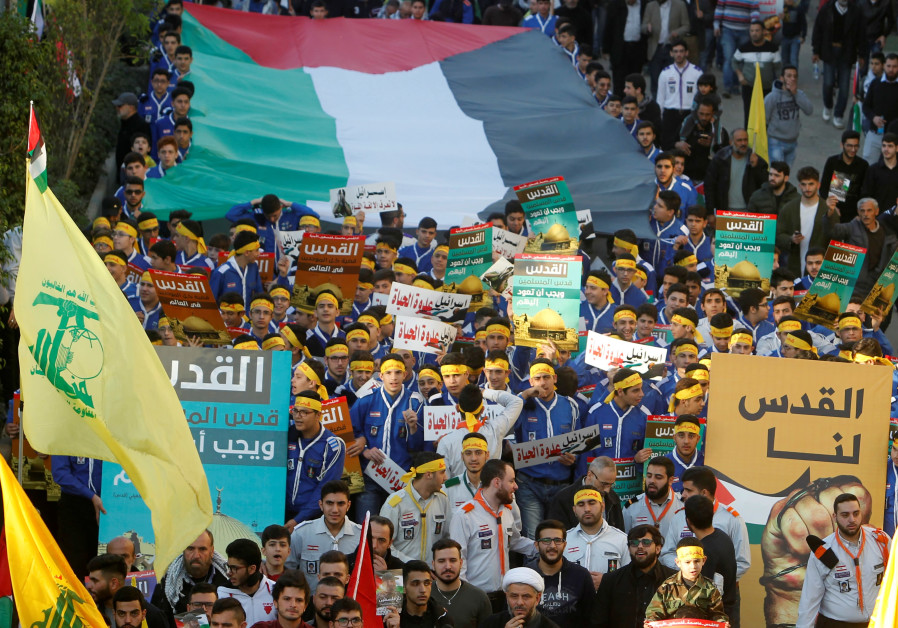Hezbollah strong-arms Lebanese elections

Supporters of Lebanon’s Hezbollah protest in Beirut’s southern suburbs, Lebanon. (photo credit: AZIZ TAHER/REUTERS)
Hezbollah, with its armed militants and Iranian-aligned leadership, is heading to the Lebanese polls. Hassan Nasrallah is still leading the party. The Lebanese have debated whether the elections will bring to power any new, younger faces or simply give another rubber stamp to the old-style sectarian politics that have run the country for almost a century.
Nasrallah views Hezbollah as a global power. In March, he gave an interview to Farda News in which he said his movement was “born with Iran’s Islamic revolution and acquired our existence and life with the Islamic revolution,” according to a translation by Amir Toumaj on the Long War Journal website. In recent years, Hezbollah has sent thousands of its fighters to intervene in the Syrian civil war.
It has also carved out relations with the Houthi rebels in Yemen and with Shi’ite militias in Iraq. It has hosted Shi’ite militia leaders from Iraq in southern Lebanon near Israel’s border. It also plays a role in the global arms and drug trade. Morocco recently expelled the Iranian ambassador, accusing Hezbollah of shipping arms to rebels in the Western Sahara.
And yet Hezbollah poses as a “defender” of Lebanon as an excuse to keep its vast arsenal of weapons in Lebanon. It runs for elections as if it is just a normal political party, not an armed Iranian-backed state within a state. Despite its vast power, Hezbollah only has 12 seats out of the 128 in parliament. It hopes to expand that number in these elections.
Reports from Lebanon are mixed regarding Hezbollah’s potential for success. Many young people appear tired of conflict and Nasrallah’s bragging. They want new faces. But the sectarian nature of the political structure, in which Christians, Sunni, Shia and Druse all run for different reserved seats, makes it difficult for any party to transcend the political field.
The problem is that this election is the first in nine years. No matter what, Hezbollah will get some seats, and by doing so, it will receive another stamp of approval for the way it uses the politics of the gun to keep its role in Lebanese society.
This puts the United States and other supporters of Lebanon in a bind. The more they support the Lebanese state, the more Hezbollah benefits. Any attempt to deracinate Lebanon from Hezbollah’s influence risks conflict that undermines Lebanese security. Hezbollah understands keenly this catch-22, and it has used the last nine years to great effect, increasingly burrowing into the country and holding it hostage to its policies.





Comments are closed.